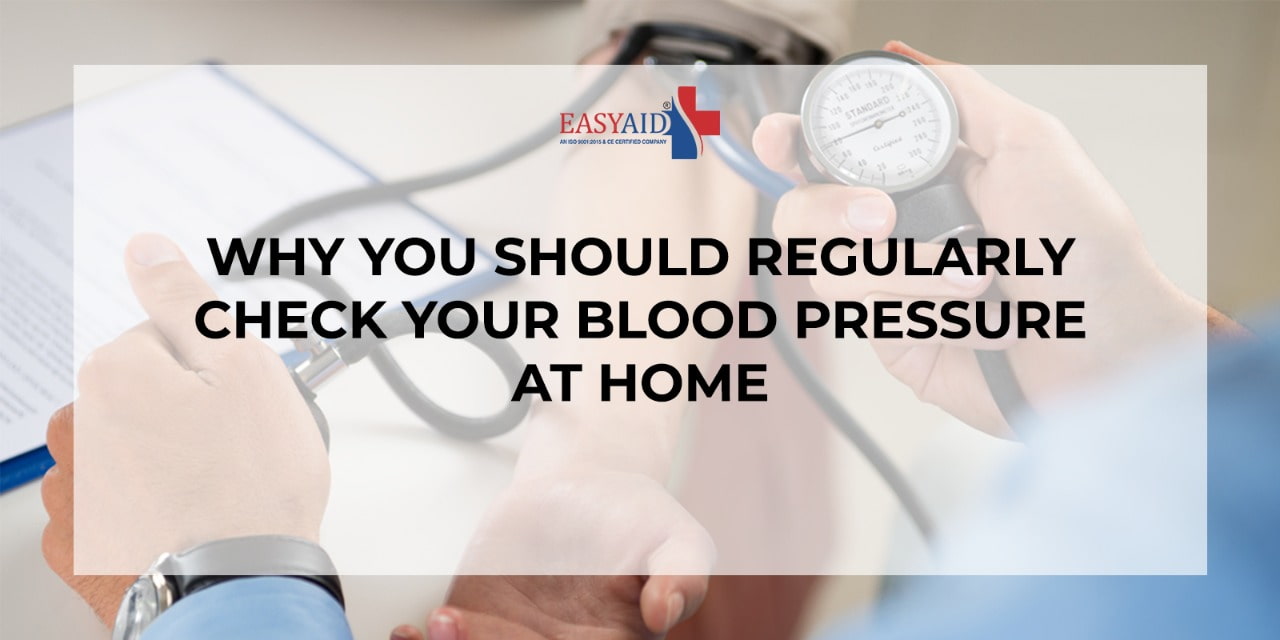
Keeping your blood pressure under control with medication and healthy lifestyle choices can be difficult if you have no way of knowing whether your treatment plan is working. The best way to keep track of your blood pressure at home is to use a blood pressure monitor and check your readings regularly with the guidance of your doctor. Here are five reasons why you should regularly check your blood pressure at home.
Table of Contents
5 Reasons Why You Should Regularly Check Your Blood Pressure at Home:
Save Time and Money.
Doctors’ visits for high blood pressure usually include both a visit to the doctor and a visit to a specialised machine. If you regularly check your blood pressure at home, however, you’ll eliminate extra time out of your schedule and save money on expensive lab tests.
While it is recommended that people who are diagnosed with high blood pressure visit their doctors every three months, you should always consult with your physician before starting any home-based treatments.
Checking your blood pressure will allow you to monitor any changes in treatment plans or course of action. For example, if you find that medication isn’t decreasing your pressure levels as expected, call your doctor immediately to discuss changes in dosage or alternative medications.
Get Accurate Results.
The thing about blood pressure is that we don’t often think about it. Sure, when you go to your doctor for a checkup, you’ll usually be asked if you want your pressure measured. But if you’re interested in tracking it on a regular basis—maybe to see how a low-sodium diet impacts your pressure or how exercise affects your readings—it can be difficult and expensive to do so consistently.
Investing in a home blood pressure monitor can give you more accurate results than a single measurement taken by a nurse, but what’s even better is that most BP monitors are inexpensive and easy to use.
Help Prevent Heart Attacks and Strokes.
High blood pressure is a silent killer, with high pressure one person may not even have any symptoms. A home blood pressure monitor can help you manage your B.P in an easy, inexpensive way. Blood pressure monitors are now widely available and are easy to use—and they’re small enough to fit in a drawer or cupboard (meaning you won’t have to lug it around).
All you need is a chair and about five minutes for each reading. If you keep track of your measurements over time, you can catch problems early. It’s important to remember that most people don’t get their recommended checkups until they hit 40 or 45 years old—meaning many problems can go undetected for decades.
Avoid Misdiagnosis.
High blood pressure is a very common condition, but it’s not always easy to spot. A person with high B.P may not have any symptoms and, in some cases, be completely unaware that he or she has it until it causes health complications like heart disease.
In fact, many people believe their high b.p is actually normal for them and don’t seek treatment until they experience an event like a stroke or heart attack. If you want to avoid misdiagnosis and potential cardiovascular events in your future, make sure to regularly check your b,p using a home-based kit.
Monitor Treatment Effectiveness.
If you’re on medication, checking your blood pressure regularly gives you an opportunity to assess whether or not it’s effective. For example, if you notice a spike in your readings while on vacation or even after eating a large meal, that may indicate a change in diet is needed.
Or if your readings are consistently high but there are no other symptoms of elevated bp, you might benefit from some lifestyle changes. Tracking and responding to patterns as they emerge allows for more individualised treatment and can also help reduce risks of complications that might be associated with undiagnosed high blood pressure.
Takeaway:
High pressure, or hypertension, is a condition that affects roughly one in three adults. Left untreated, it can lead to increased risk of heart disease and stroke. So how often should you be checking your blood pressure? The American Heart Association recommends getting yours checked every two years if your reading is normal or five years if you have prehypertension.
In other words, there’s no set period—but a regular habit of taking and recording readings is helpful for both prevention and management. (Healthline)
Read More Articles visit now: numlookup.org